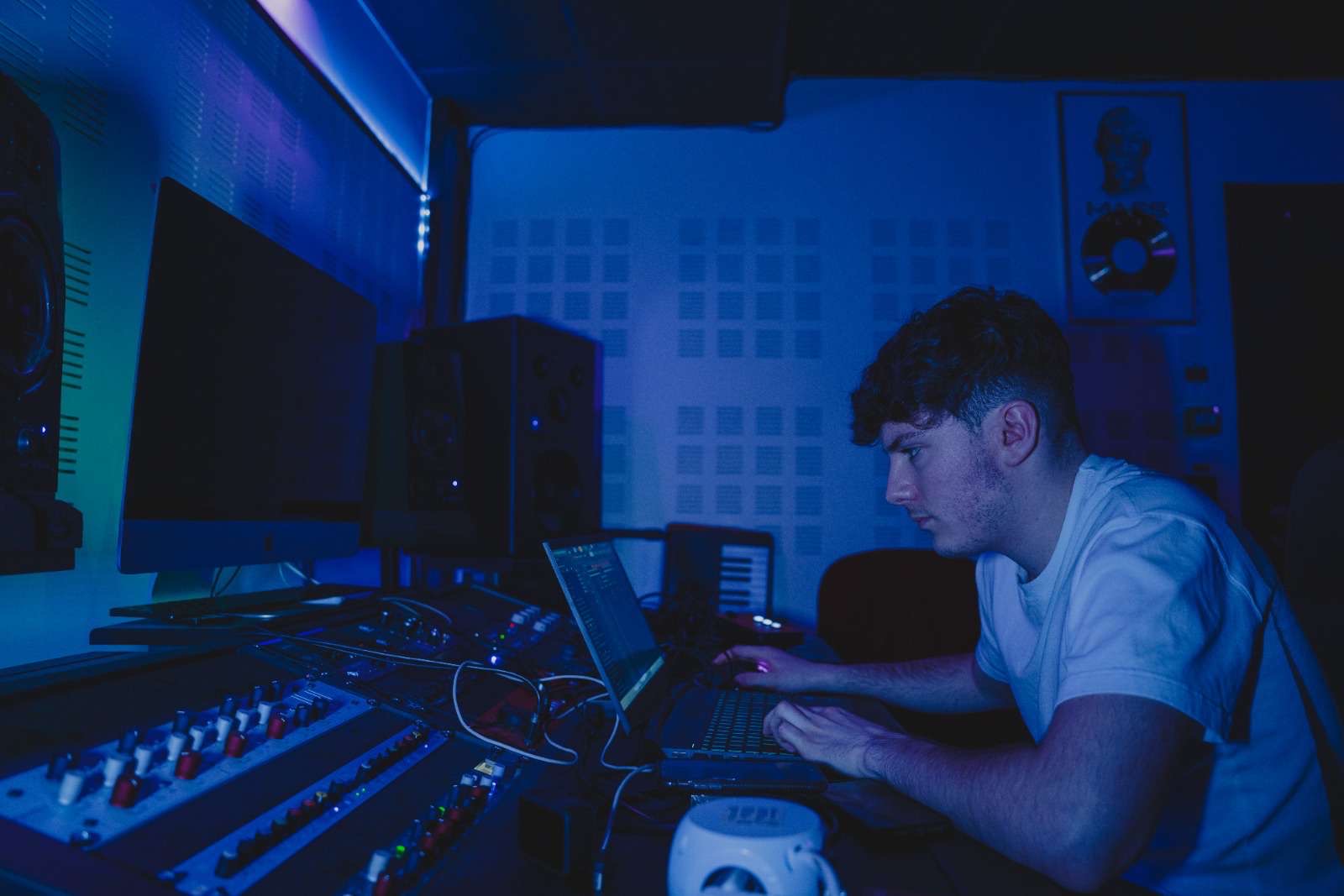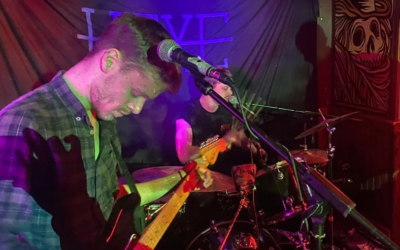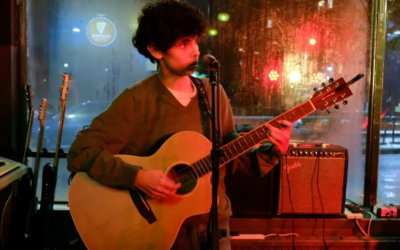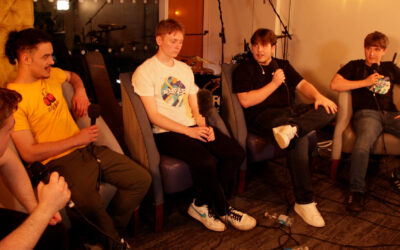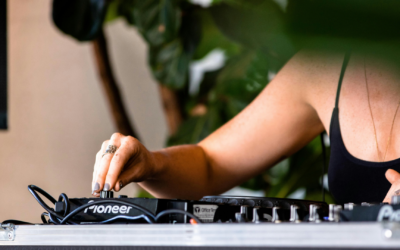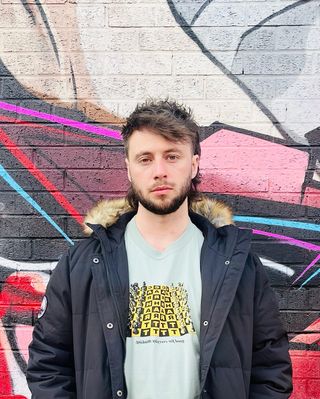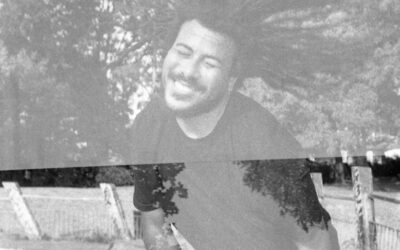Why is there so much hypocrisy surrounding drill? Historically, people haven’t liked things that are new and honest, it scares them, and drill music is a product of this. UK drill producer H1K gives an insider perspective on the scene, explaining how much talent, time and work goes into producing beats and collaborating with famous artists.
Whether it’s marmite flavoured crisps or oversized jeans, new trends are quick to be judged. Eminem is known as one of the most controversial yet best-selling artists of the early 21st century. Rapping about killing his wife and defaming his mother in interviews, might’ve added to the argument whether to ban his art, but it didn’t stop him from winning countless Grammy Awards, and being placed in the Rock and Roll Hall of Fame in 2022, earning his place in music history. Banned material might cause controversy at the time, but it slowly reaches a point where it is finally accepted. This is a pattern seen in most art, an evolution from controversial to normalised. Now it’s drill. But will the perception of drill ever be overcome to reach that point?
Popularly known through his producer tag H1K made this, Ben Haldane is a 23-year-old producer based from Hertfordshire, who has since produced top charted music for artists including Abra Cadabra, K-Trap, Sam Wise, Unknown T, M1llionz, 67, and more. Starting on trap beats, then seeing a gap in the market, he started making drill beats back in 2019. Our conversation explored how he first got into producing drill, how the image of drill has evolved, and whether change really scares people.
When asking him, ‘what is drill?’, he described the sound as “typically quite moody, with ominous undertones and raw lyrics, or energetic and upbeat, depending on the sort of subgenre of drill you are looking at.”
Does drill glamourise crime?
As controversial as it is popular, drill has been accused of glamourising violence in its younger audience. More recognised artists have begun to consider whether this is the case, like West London rapper, Digga D, who runs his lyrics past a lawyer to ensure they’re not deemed to be encouraging violence. Growing up in rural areas all his life, H1K hasn’t experienced the lifestyle drill is exposed to. “I can’t really talk about it as I’ve never grown up in areas in London, so it’s hard for someone like me to say because I don’t really know what lives these artists are living, it’s quite ignorant for me to say.” says H1K.
“I know people use the word glamourising, but I see it as they’re just talking about life experiences, but maybe once someone gets to a certain size and has a certain influence, they would need to be slightly more careful about what they say, as maybe it could come across as glamouring it if they’re a well-known, public figure,” says H1K.
“The music comes from what they’re living, it’s not as if they are making the songs to glamourise it. I guess the sort of stuff they say can sometimes be quite provocative, but again, that’s between them and whatever life they are living, and I don’t think that means that the people who listen to the songs should think ‘oh they’ve said this so I’m just going to go and do it too’, but maybe that’s a matter of maturity.”
“You could say the same for violent games like GTA, Call of Duty, which a lot of kids play. There’s probably a bigger number of young kids playing violent games than actually listening to the lyrics in music, so I don’t know how much you can blame it for. I’m trying to understand it from both sides, but personally I don’t think you can blame drill for glamourising violence alone, I think there are other factors, and maybe it is just because it is new. I know quite a lot of people don’t like change. Maybe that’s the older generation or maybe they just don’t get it,” H1K said.
Evolution of drill
Drill has since evolved from its 2011 origins, a genre with a reputation, to music that people can simply vibe to. Brooklyn rapper, Pop Smoke, single-handedly changed what it meant to make drill, twisting the genre, collaborating with English producer 808Melo, and arguably, making drill completely unique. Moving away from darker melodies, the sound has infiltrated into nightclubs, gym playlists, and other artists songs, having a global impact on major artists such as Drake, and Travis Scott who have been heavily influenced by the sound. “When you go to the clubs nowadays, in the R&B rooms, drill is like 60-70% of the music you hear,” says H1K.
“Drill music, or should I say, ‘drill music’ with quotations over it because it’s such a broad genre now, at the start, was just seen as a violent genre, which it was, it was underground music,” says H1K. “But drill is more than just that now, it’s wide-ranging and influential.”
“You had the underground sounding drill, which is unregulated with what is said because they don’t have management teams, so that sort of drill was probably the type that was getting banned in 2020. But then you have artists like Central Cee, you have Nemzz now, who jumps on technically drill type beats, but they’re faster and have quite an upbeat sound. These are all artists who are using these new types of drill genre beats I guess people accepted the change then because everyone’s listening to these bigger artists now. Like Pop Smoke, who died in 2020. He took the UK drill sound, on UK producers beats, and made it huge in America,” H1K says.
Overcoming the reputation
“I didn’t get any bad reactions from making drill. A lot of my friends liked it because it’s popular music. A few older people around me would question it, just based on their general outlook of music that’s getting banned nowadays, they might’ve thought, ‘I wonder who Ben’s hanging out with’, because it has got a bit of a bad reputation, maybe at the start. But nothing bad has ever happened, and it is just making music at the end of the day, so, I guess that sort of shows anyone who thought that way in the first place, that it’s not what they think it is, or what, in my eyes, it was made to look like,” said H1K.
The Musicians’ Union (MU) submitted a motion called ‘Drill Music & Knife Crime’ to the 2019 TUC Black Workers’ Conference, where MU Official, John Shortell stated: “Youth violence is a complex issue, and there is no single solution, but criminalising young people making music about the reality of their lives is not one of them.” Banning drill alone won’t tackle the route of youth crime, and it should be treated as a public health crisis.
“Censorship is not a solution to youth violence. Adequately funding schools, youth services and giving all young people opportunities to develop their creativity in a positive way are,” added Shortell. As H1K spoke about a few cases of explicit songs being taken off the internet in attempt to censor them, he claimed that “the problem with that is it just goes viral on other platforms, like TikTok, people repost the music videos, and it stays on the internet forever, so there no real ways of combatting that.”
Follow us on Instagram, Twitter, Facebook and Tiktok for more content!


